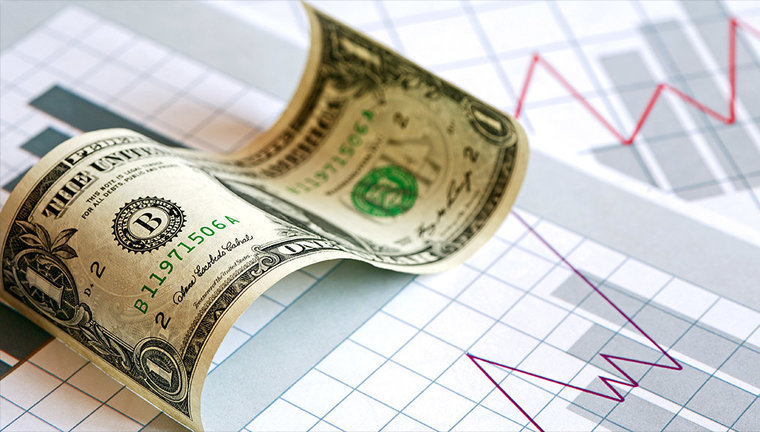Cash is usually trash for the long-term investor.
Having a certain amount of cash on hand as a protection against short-term problems—such as unemployment or an unexpected medical expense—is reasonable. However, these days millions of Americans are overdoing it by holding unreasonably high cash balances. That can mean they are under invested. And that can lower their long term rate of return.
The result of their market phobia will be many investors won’t attain goals because their long term rate of return was lower than it could have been. When bull markets occurred, they didn’t get the full benefit of them. That’s because much of their money was on the sidelines in cash.
Money—a Love Story Gone Bad
Why are these investors in love with cash?
Some are spooked by volatile stock markets along with constant debates over interest rates and economic crises overseas. All of that combined with constant noise about markets lead many investors to make bad choices.
Still, many investors hurt themselves by holding too much cash.
Why is cash often trash?
Get a Good Rate of Return
Unlike properly chosen stocks and bonds that can provide healthy long term rates of return, cash in savings and checking accounts has been earning nothing or almost nothing for years.
For instance, a friend of mine has $31,000 or so in his “super saver” savings account at a major bank. What did he get last month for his money? Twenty six cents. Twenty six cents? You can’t even buy a tabloid newspaper with that here in the Rancid Apple.
His long term money, or most of it, should be working for him elsewhere. That’s because these days—and going back to the crash of 2008 when the American central bank, the Federal Reserve, basically lowered interest rates to zero—cash is a drag on an investor’s rate of return.
“Cash is not a good investment. After taxes, inflation and its current expected return (zero), you are actually losing money when you hold cash in your investment portfolio,” according to Dan Egan, director of behavioral finance and investments for money manager Betterment.
Pulling Down Your Rate of Returns
Cash becomes a drag on returns over the long term, he adds. And that could prevent an investor from having enough to live comfortably. Living independently, the ability to live from one’s investments, means a net rate of return. How does that happen? One earns a higher rate than the destructive costs that can drag down an investment plan: Inflation and taxes.
So, say you were entirely in cash last year and inflation was one percent. You total return was minus one percent. You lost buying power. You’re falling behind.
By contrast, say you are primarily in the stock market another year and you earn nine percent. Inflation was two percent and you paid two percent in investment taxes. Your net that year was plus five percent. You gained ground. The buying power of your money grew. Still, there’s nothing wrong with having some cash, provided it is a small component of your assets.
Cash—Have A Little, but not a Lot
“While a small portion of cash, for example an allocation of six percent, may seem like an insignificant amount, it still can have a significant drag on returns. This is especially true for a long-term investor who should be in a high-stock allocation,” Egan adds.
“Cash is not an investment,” says Heather Pelant, Managing Director and U.S. Head of Personal Investing at money manager BlackRock.
Nevertheless, BlackRock, in its latest investor survey, found many investors don’t understand that.
Four-fifths of Americans (80%) express confidence that their investment portfolio has the right asset allocation and investments to help them achieve their financial goals, the survey reported.
However, “as was true in our 2013 survey,” BlackRock wrote, cash remains king, “with almost two-thirds (63%) of all savings and investments held in cash─and most of that in traditional checking and savings accounts (51%).”
How Much Moolah?
Pelant says most investment plans should have no more than 10 percent in cash at the max.
Still, the cash is great sentiments of those surveyed by BlackRock reinforces the recent findings of the BoA Merrill Lynch Fund Manager survey. It found cash levels soaring to the “highest level since the 2008 crisis—5.5 percent of portfolios.”
Investors have “raised their holdings of cash significantly in response to a weaker global economic outlook, particularly in China,” BoA Merrill Lynch fund.
Nevertheless, there are good reasons for holding some cash, Pelant says. This includes an emergency fund against the possibility of six months or more of unemployment.
Egan says cash is appropriate for those with very short investment spans such as a year or less. However, he adds, cash as a long term investment tool is the wrong choice.
Cash Can Torpedo an Investment Goal
Over decades it can have a devastating effect on investment returns. Egan offers an example: Say one invests $100,000 over 30 years, but carries a cash drag of 10.5 percent. Another $100,000 investor has little or no cash drag. The investor without the cash drag earns some $73,000 more.
What should the average investor do at a time of low interest rates and markets that seem to rocket or crash each day?
Money pros offer these tips.
*Don’t let headline noise upset you.
Recognize that much of the interest rate reaction is already priced in the stock markets.
*Investors should educate themselves and have a trusted adviser
Use this as an opportunity to learn how investments, monetary policy and the markets are all related. Be sure your source is credible.
*Cash is trash. Don’t carry a lot of it.
Take an inventory of your stocks, bonds and cash. Remember that you actually can lose money in cash, when factoring in inflation.
![]()
